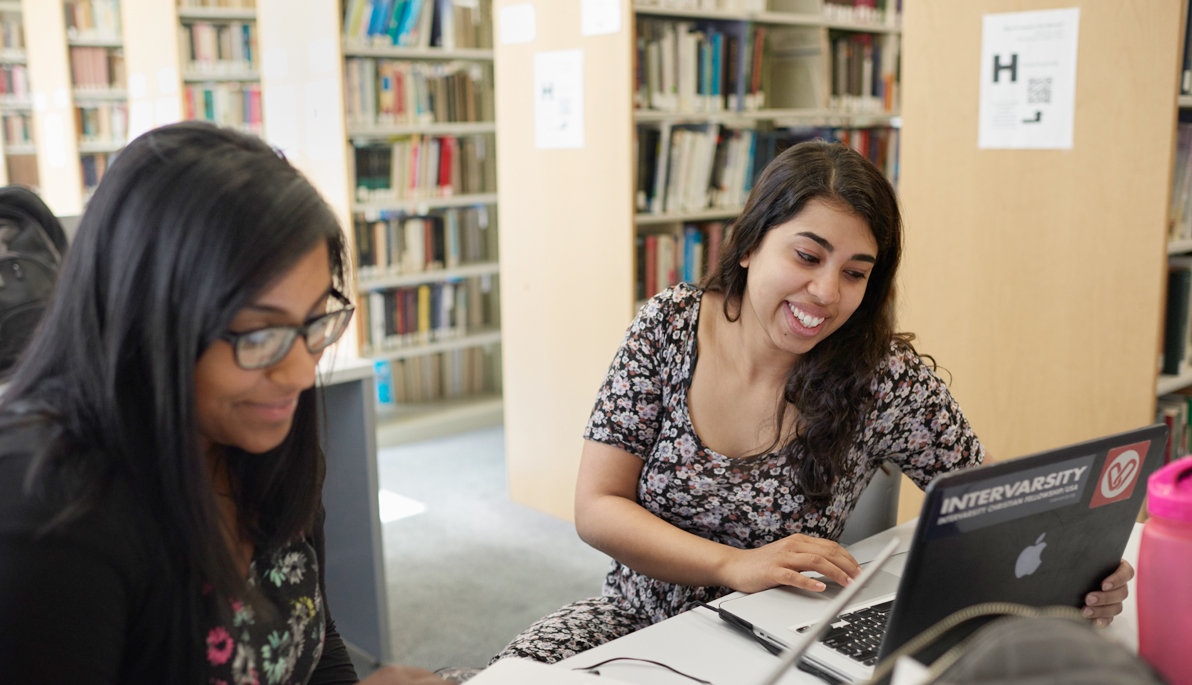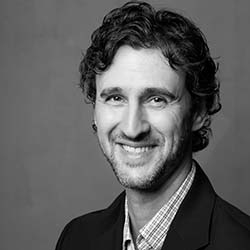
Filling the Research Skills Gap
August 18, 2017
Sebastien Marion is Virtual Services, Librarian III based in the Manhattan campus library and specializes in education technology, contemporary literacies, and libraries. Below, he provides guidance and advice for how students can hone their research skills in an era when those skills are being lost.
As students get ready to start a new school year, they come prepared with laptops, books, and their course schedule. But there is one thing they may not even realize they are missing: research skills. Students entering college suffer from a pronounced research skills gap. They arrive unprepared for the complexities and rigor required to find, evaluate, and use scholarly information.
Links to NYIT Library Services:
Databases and Journals: Search thousands of databases and journals.
Ask a Librarian: Chat with an NYIT Librarian for quick answers to everything from “How do I print from my laptop?” to “How can I get books from other NYIT campuses?”
Google Search Tips: Learn how to expertly search Google using the best keywords.
Group Study Rooms: Being independent in college is a myth. Lean to collaborate with your peers.
Meet with an NYIT Librarian: Research should not be overwhelming or intimidating. Reach out to NYIT librarians who are both allies and sources of mentorship.
When searching online, many people try to get the maximum benefit with minimum effort. Students are no different, but they also lack ability to properly deploy their attention. This is a problem when thinking through questions and using resources. Making matters worse is that much of the information found online is un-authorized. That the Internet does not have an IQ is something that needs to be taught. As a result, problem solving skills and the ability to develop conceptual knowledge may suffer.
In the past, scholars, editors, publishers, and librarians all provided a level of scrutiny so that when you acquired data, you could feel somewhat confident that it had been reviewed and that its value had been considered. However, due to the increasing power of search engines, bots, and digital assistants, the research skills gap can be expected to grow.
A library curriculum teaches students how to deploy their attention with maximum effectiveness. It’s a form of “tool belt literacy,” or “techno-literacy,” where understanding and knowing how to use the right tool for the right job improves one’s learning. Literacy these days is not just reading and writing, but also understanding what knowledge tools are available, and how they can be used. With a little effort, students can learn how to use online tools, and their own thinking skills, to thrive and be more creative.
The following are a few tips to be a successful researcher:
- Understand the question before looking for the answers.
- Learn how to distinguish truth from fiction.
- Words matter. Consider them carefully when formulating search queries and deciding on keywords. Words have broader, narrower, related, and variant meaning. Search is iterative and searches are developed over time.
- Develop and maintain a current understanding of the landscape of available resources and tools. NYIT provides access to thousands of databases and journals covering every discipline.
- Visit the NYIT online and branch libraries early in the semester and often. Develop patterns in your academic career that reinforce success.
- When searching a topic with Google, you are searching language written by other people. Learn how to do so expertly.
- Use social media. Find other people you can learn from, and create a clear and consistent signal so people can learn from you. Most importantly, participate in conversations and develop your social capital.
- Curate content and harvest information that supports your curiosities and passions. Whether it’s persistent searches, intelligence dashboards, Twitter lists, RSS feeds, or social bookmarking, the act of collecting information prioritizes your attention, and will help you gain confidence.
According to Nature.com, it’s dangerous to assume that the presence of technology in our lives has improved our research skills. If we want to truly engage the future, learning sophisticated strategies for dealing with information is a good place to start.
For more information and tips follow @NYITLibrary on Instagram and Twitter.
More Features

An Alumnus’ Commitment to the Environment
As an energy management graduate from New York Tech’s Vancouver campus, Jasdeep Gulati (M.S. ’22) is highly invested in educating people about environmental and climate sustainability.

Vancouver Faculty Win University-Sponsored Research Awards in New Program
The new Global Impact Research Grant (GIRG) program has been developed to keep Vancouver-based faculty connected to faculty and research projects being conducted on the university’s New York campuses.

Studying Climate Change One Degree at a Time
Junhua Qu (M.S. ’24) began her collegiate journey in Beijing. But, her interest in climate change took her to New York Tech’s Vancouver campus to study energy management.
